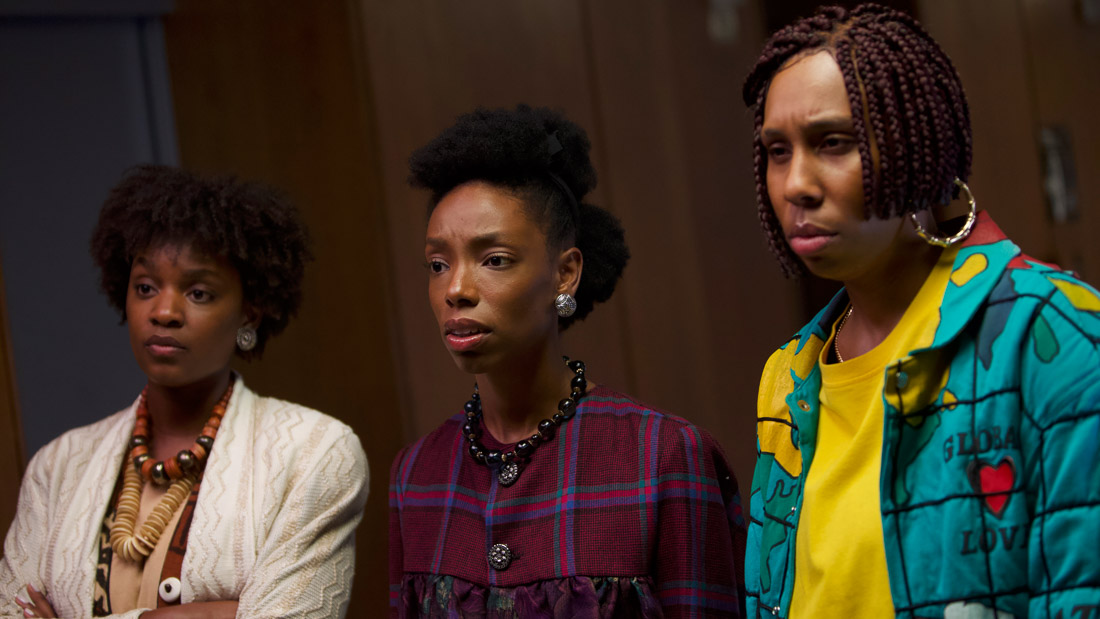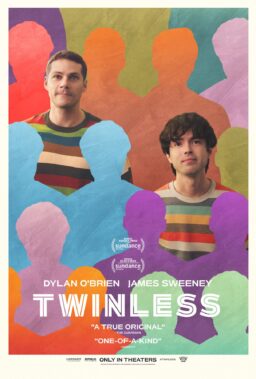Justin Simien, the writer/director behind the film and TV versions of “Dear White People,” introduced his long-awaited follow-up on opening night of Sundance 2020 with an emotional speech about how black women are used and abused by society. Fashion, music, art, you name it—their culture and influence are everywhere, but they are rarely given the chance to actually succeed on their own terms. He spoke passionately and movingly about the women who raised him—his mother and aunts, who he named characters after in his new film—and I thought about that passion and the idea that black women face a different struggle as I watched another film about mothers and daughters the very next day. It’s always fascinating how these trends emerge at festivals like Sundance, and almost equally fascinating that it’s the emotion behind the filmmaking that elevates these two works above their flaws. Both films frustrated me at times, but also inspired me with their ambition and attempt to tell stories we don’t hear often enough.
We certainly won’t hear another story like “Bad Hair” this year. Or next. Simien also mentioned in his introduction that he wanted to pay homage to horror he loved like “Rosemary’s Baby,” “Invasion of the Body Snatchers,” and “The Wicker Man.” The result is a fascinating hybrid, a hip-hop horror film that’s not unlike “House Party” meets “Invasion of the Body Snatchers.” At 115 minutes, “Bad Hair” suffers greatly from pacing problems, but it’s something to behold when it’s really working, and that’s true through most of the second half of the film. With echoes of camp, B-movies, ‘80s hip-hop, and female empowerment films of that era, “Bad Hair” is stunningly ambitious, and that overwhelms most of my issues with it.
Elle Lorraine gives a truly breakthrough performance as Anna Bludso, an assistant at a BET-esque music video station called Culture. She’s been stepped on for years, whether it’s the fact that she never gets a promotion or that she has to hide her relationship with a slimy VJ played by Jay Pharaoh. Anna barely makes rent and that’s before her truly sleazy landlord raises it $500. And then her boss is replaced by the steely Zora (Vanessa Williams), who advises Anna to do something about her hair or be ignored. Finally giving in to getting a weave, Anna ends up at a high-priced venue called Virgie’s. The hair literally sewn into her head seems to do the trick as Anna rises the corporate ladder, knocking on the door of her dream of becoming on-screen talent. And then she learns that the weave has a mind of its own, literally, and people start dying.
Simien is merging slave folklore about hair imbued with witchcraft with a story of how much more women, especially black women, have to fight to get ahead. They have to literally cause themselves pain to be seen as beautiful, and step on each other to achieve success. He populates his film with memorable characters and familiar faces, including pop stars like Kelly Rowland and Usher, and he shoots the whole thing on 16mm film. It’s a lot of movie. Sadly, the first half needs … sorry … a cut. There are scenes that feel saggy, and don’t build the necessary momentum needed to get to the back half of the film. “Bad Hair” could work wonders as a tighter, shorter film, but can’t sustain at nearly two hours. Still, there’s imagery and ideas in it that I won’t forget for a long time, and I can’t wait to see how people respond to its insane ambition and memorable imagery.

Similarly, I expect there will be a vocal fan base for Channing Godfrey Peoples’ tender U.S. Dramatic Competition film “Miss Juneteenth,” a very different film tonally than Simien’s, of course, but also a movie that’s undeniably about how the hurdles for black women just seem a little bit higher than those for everybody else. Nicole Beharie gives a performance that feels like she’s just on the verge of household name stardom in a film that I liked in terms of setting and theme but falters a bit when it comes to dialogue and character. A bit too much here comes off as two-dimensional and blunt, but Peoples’ real gift may be for setting. She captures a side of Fort Worth we haven’t really seen before and her locations, from a BBQ joint that becomes a lounge at night to a local church, feel lived in and genuine. Like a lot of Sundance debuts, it’s a film for which critics will likely employ that over-used word “promising,” but I’m definitely eager to see what Beharie and Peoples do next.
Beharie plays Turquoise Jones, who works at the aforementioned BBQ Lounge and a funeral home run by an old classmate who’s had a crush on “Turq” for years. She’s also got a daughter named Kai, who is just about to turn 15, a big age in this community in which a teen girl beauty pageant is run every year to crown Miss Juneteenth. Turquoise was one of the winners back in 2004, but pregnancy derailed what she could do with the scholarship prize. Turquoise is going to do whatever it takes to help Kai win, even if her daughter isn’t interested at all.
A story of a woman trying to correct her past by living through her child isn’t new, but there’s a tenderness to “Miss Juneteenth,” particularly in Beharie’s performance, that we don’t see often enough in this subgenre. Peoples really likes her characters, which makes some of the shallower caricatures around Turq, including Kai’s derelict father and Turq’s ultra-religious mother, easier to take. As frustrating as a lot of “Miss Juneteenth” can be, there’s something pure at its center that you’d have to be truly cynical to ignore.












